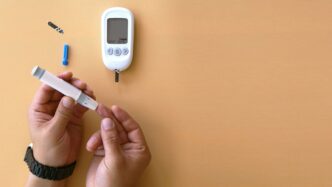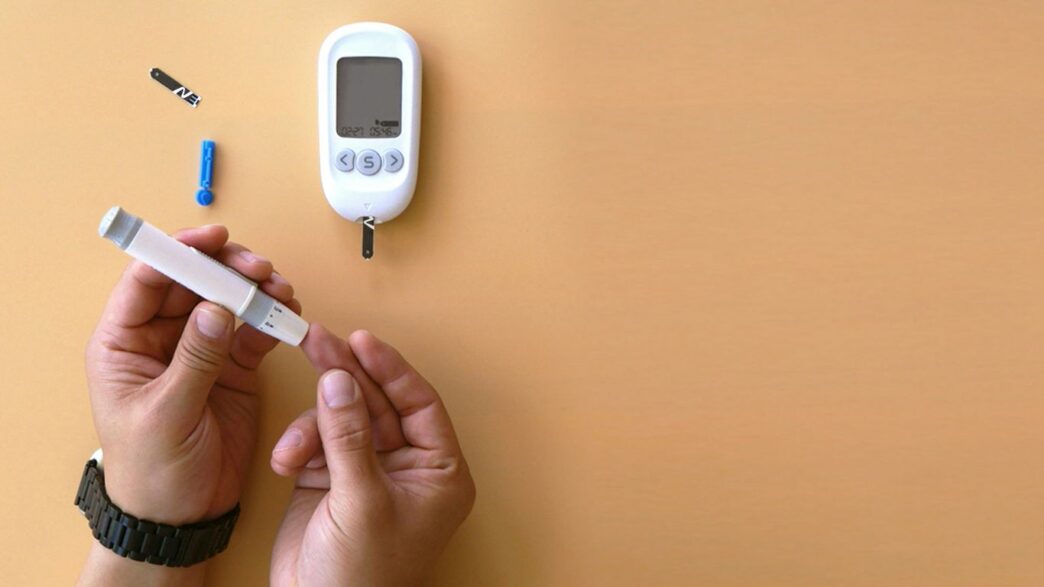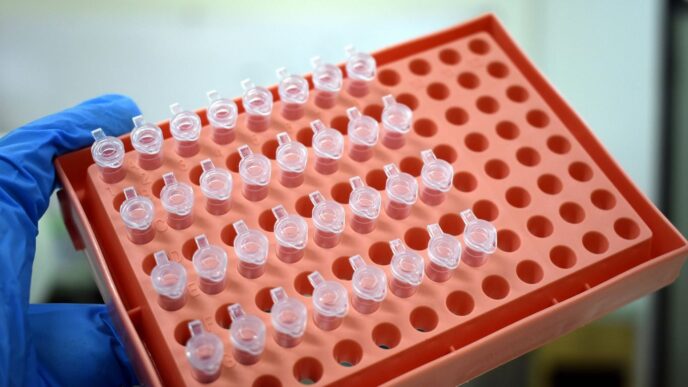Diabetes management has come a long way, and the tools we use are getting smarter. For a long time, it felt like insulin pumps were the only real game in town for high-tech diabetes care. But what about the millions who prefer or need to use insulin pens? Well, Companion Medical is changing that. They’ve developed a smart insulin pen that’s making a big difference in how people manage their diabetes every day. It’s not just about delivering insulin anymore; it’s about making that process easier, more accurate, and more connected.
Key Takeaways
- Companion Medical’s smart insulin pen, the InPen, brings digital technology to a widely used insulin delivery method.
- These smart pens automatically track insulin doses, removing the guesswork and manual logging.
- They can calculate personalized insulin doses based on glucose readings and carb intake, similar to insulin pumps but at a lower cost.
- By improving dosing accuracy and consistency, smart pens help users achieve better time in range and A1C results.
- The data collected by smart pens can be shared with healthcare providers, leading to more informed conversations and personalized treatment plans.
Companion Medical: Pioneering Smart Insulin Pen Technology

It feels like insulin pens have been around forever, right? I remember seeing them at diabetes conferences years ago, looking pretty fancy, almost like a nice pen. But they were just… pens. Now, though, things have really changed. Companion Medical is right at the forefront of this, taking those familiar pens and adding some serious smarts. They’re turning a simple delivery device into a key part of managing diabetes.
The Evolution of Insulin Delivery Devices
For a long time, if you needed insulin, you had a few main choices. There were vials and syringes, which, let’s be honest, can be a bit clunky and hard to get just right. Then came insulin pens, which were a step up in convenience. They made carrying and injecting insulin much easier for a lot of people. But even with pens, you were still doing all the mental math yourself – figuring out doses, remembering when you took them, and keeping track. It was a lot to manage on top of everything else that comes with diabetes.
Introducing the Companion InPen
This is where Companion Medical really stepped in. They developed the InPen, which was one of the first FDA-approved smart insulin pens. Think of it like this: it’s still an insulin pen you’re familiar with, but it connects to your smartphone. This connection is a big deal. It automatically tracks how much insulin you’ve taken and when. No more scribbling notes or trying to remember if you already gave yourself a dose. The pen itself, along with its app, can also help you figure out your dose. You put in your settings – like how many carbs you’re eating or your current blood sugar – and it helps calculate what you need. It even subtracts any insulin that’s still working from a previous dose, which is something you’d usually only find in an insulin pump.
Companion Medical’s Role in Innovation
Companion Medical didn’t just make a gadget; they aimed to make a real difference. By adding this technology to something many people already use and are comfortable with, they’ve made advanced diabetes management more accessible. They’ve taken features that were once only available with more complex and expensive devices, like insulin pumps, and put them into a more user-friendly package. This approach is all about making life with diabetes a bit simpler and giving people more control over their treatment.
Revolutionizing Diabetes Management with Smart Pens
It feels like insulin pens have been around forever, right? For a long time, they were just… pens. You’d dial in your dose, inject, and then try your best to remember it all later. But things have really changed. Smart insulin pens are turning these simple devices into something much more powerful, making diabetes management less of a chore and more of a personalized plan.
Automated Insulin Dosing and Tracking
This is a big one. No more guessing if you took your insulin or how much. Smart pens automatically record every dose you take. This means no more scribbling in a notebook or trying to recall if you injected 5 units or 7 units this morning. It’s all logged, so you know exactly what happened.
Here’s what gets tracked:
- Dose Amount: The exact number of units injected.
- Time of Injection: When the dose was administered.
- Insulin Type: If you use different types of insulin, the pen can help keep track.
Personalized Dose Calculations
This is where the
The Advantages of Smart Insulin Pens Over Traditional Methods
Look, nobody likes dealing with diabetes management. It’s a constant juggle. For years, the main ways to get insulin were either a vial and syringe or, if you were really into tech, an insulin pump. But smart insulin pens? They’re changing the game, offering a middle ground that’s pretty darn convenient.
Addressing Limitations of Vial and Syringe
Let’s be honest, the old way of using vials and syringes isn’t exactly foolproof. You have to draw up the dose yourself, which means you can easily miscalculate or inject the wrong amount. Plus, keeping track of when you took your last dose? That’s usually a manual logbook situation, and who actually remembers to do that perfectly every single time? It’s easy to forget a dose or double up by accident. Smart pens take away a lot of that guesswork and manual effort. They automatically record every dose, so you know exactly what you took, when you took it, and how much.
Smart Pens vs. Insulin Pumps: A Comparative Look
Now, insulin pumps have been around for a while and can do some amazing things. They can deliver insulin continuously and even adjust doses based on your glucose readings. But pumps aren’t for everyone. They can be expensive, require a bit of a learning curve, and some people just don’t like the idea of being attached to a device all the time. Smart pens offer some of the same benefits, like tracking doses and helping with calculations, but without the continuous connection or the hefty price tag of a pump. They’re a more accessible option for many.
Here’s a quick look at how they stack up:
| Feature | Vial & Syringe | Insulin Pump | Smart Insulin Pen |
|---|---|---|---|
| Dose Tracking | Manual | Automatic | Automatic |
| Dose Calculation | Manual | Automatic | Automatic (with app) |
| Insulin On Board (IOB) | No | Yes | Yes (with app) |
| Cost | Low | High | Medium |
| Continuous Connection | No | Yes | No |
Improved Adherence and Ease of Use
Because smart pens make tracking and dosing so much simpler, people tend to stick with their treatment plans better. When you don’t have to worry as much about remembering details or doing complex math before every meal, it just makes life easier. This improved adherence can lead to better blood sugar control over time. Think fewer highs and lows, and generally feeling more stable day-to-day. It’s about making diabetes management less of a burden and more of a manageable part of your life.
Data-Driven Insights for Better Diabetes Care
It’s pretty amazing how much information we can get from smart insulin pens these days. Gone are the days of scribbling notes in a logbook that you might forget or lose. The Companion InPen, for example, automatically keeps track of your insulin doses. This isn’t just about remembering how much you took; it’s about building a detailed picture of your diabetes management.
Seamless Data Capture and Cloud Storage
One of the biggest wins with the InPen is how it just… works. You inject your insulin, and the pen records the dose, time, and type of insulin. No extra steps needed. This data then gets sent securely to the cloud. Think of it like a digital diary for your insulin, but way more reliable. This means you don’t have to worry about losing your records or trying to recall details from weeks ago. It’s all there, organized and ready.
Empowering Patient-Provider Conversations
This collected data really changes how you talk with your doctor or diabetes educator. Instead of guessing or trying to remember, you can look at actual data together. For instance, if you’re struggling to keep your blood sugar in check, reviewing your insulin dose history might show a pattern. Maybe you’re consistently missing doses before meals, or perhaps the amount you’re injecting isn’t quite right for your needs. Seeing this information laid out objectively can make it much easier to figure out what needs adjusting. It opens the door for more specific advice and targeted support, moving beyond general recommendations to personalized strategies.
Leveraging Data for Personalized Glycemic Management
Having this detailed insulin data, especially when combined with information from a continuous glucose monitor (CGM), gives a fuller view of your diabetes. It helps your healthcare team understand how your body responds to different doses and at different times. This allows for more precise adjustments to your insulin regimen. It’s not just about hitting a target number; it’s about understanding the nuances of your individual response. This can lead to better time in range and, ultimately, improved A1C results over time. The goal is to move towards a more proactive and tailored approach to managing diabetes, making daily life with the condition a bit easier.
The Future of Diabetes Technology with Companion Medical
Integration into the Connected Diabetes Ecosystem
Smart insulin pens like the Companion InPen are no longer just standalone devices. They’re becoming a key piece in a bigger puzzle, connecting with other diabetes tools. Think about your continuous glucose monitor (CGM) and your smart pen talking to each other. This connection means all your important diabetes information can be viewed in one place, often through a smartphone app. This makes managing your diabetes way less complicated. Instead of juggling different apps or trying to remember numbers, everything is right there. This connected approach is changing how we handle diabetes care, moving towards a system where all your devices work together to give you a clearer picture of your health.
Potential for Machine Learning and Advanced Support
This is where things get really interesting. All the data collected by smart pens and other devices can be analyzed using machine learning. This technology can spot patterns that might be hard for a person to see. For example, it could help predict when your blood sugar might go too high or too low based on your insulin doses, food intake, and activity. This kind of advanced analysis could lead to more personalized advice and adjustments to your insulin regimen, potentially even helping your doctor make better treatment decisions. It’s like having a super-smart assistant helping you and your healthcare team fine-tune your diabetes management.
Expanding Access to Digital Diabetes Solutions
For a long time, many advanced digital diabetes tools were mainly for people using insulin pumps. Smart insulin pens change that. They bring digital capabilities to a much larger group of people who use pens for their insulin. This means more individuals can benefit from automated tracking, dose calculations, and data sharing. Companion Medical is helping to make these kinds of helpful technologies available to more people, which is a big step forward. The goal is to make managing diabetes easier and more effective for everyone, no matter how they take their insulin.
The Road Ahead for Smart Insulin Pens
So, what does all this mean for people managing diabetes? Basically, smart insulin pens are a pretty big deal. They take something familiar, like an insulin pen, and add smart tech to make tracking doses way easier. No more guessing if you took your insulin or how much. Plus, they can even help figure out the right dose based on your glucose levels and food. This means better control over blood sugar, fewer health problems down the line, and maybe even lower healthcare costs. While insulin pumps have been around for a while, smart pens offer similar benefits to a lot more people who might not want or be able to use a pump. It’s all about giving folks more choices and better tools to manage their diabetes. Companion Medical, with its InPen, is leading the charge, showing how these devices can really change the game for everyday diabetes care.














